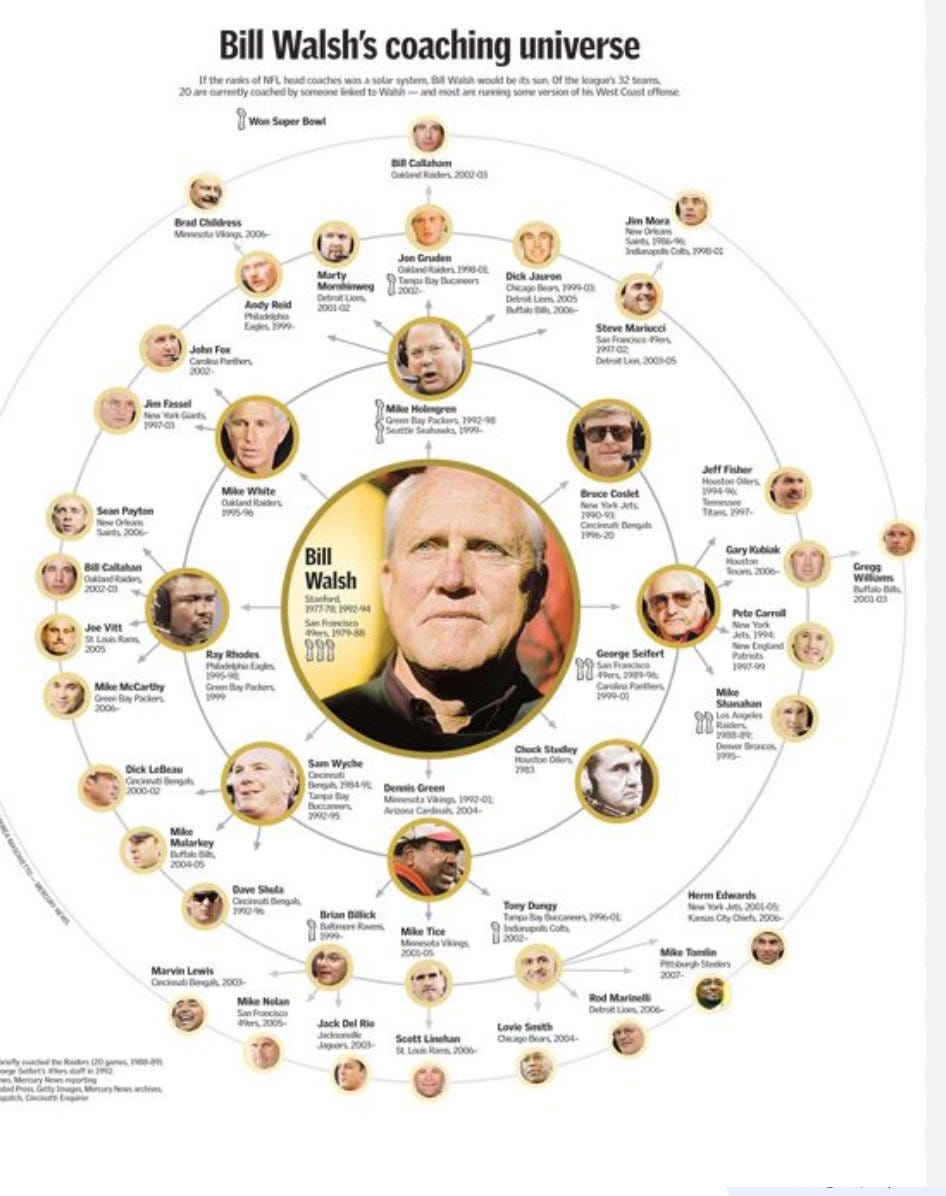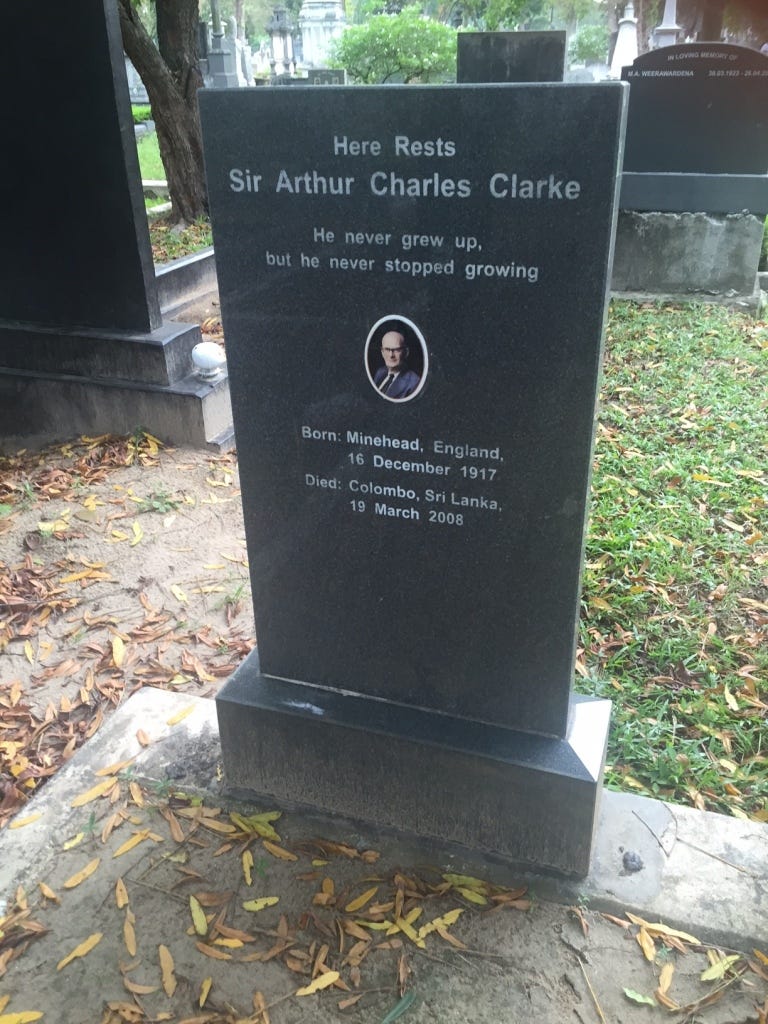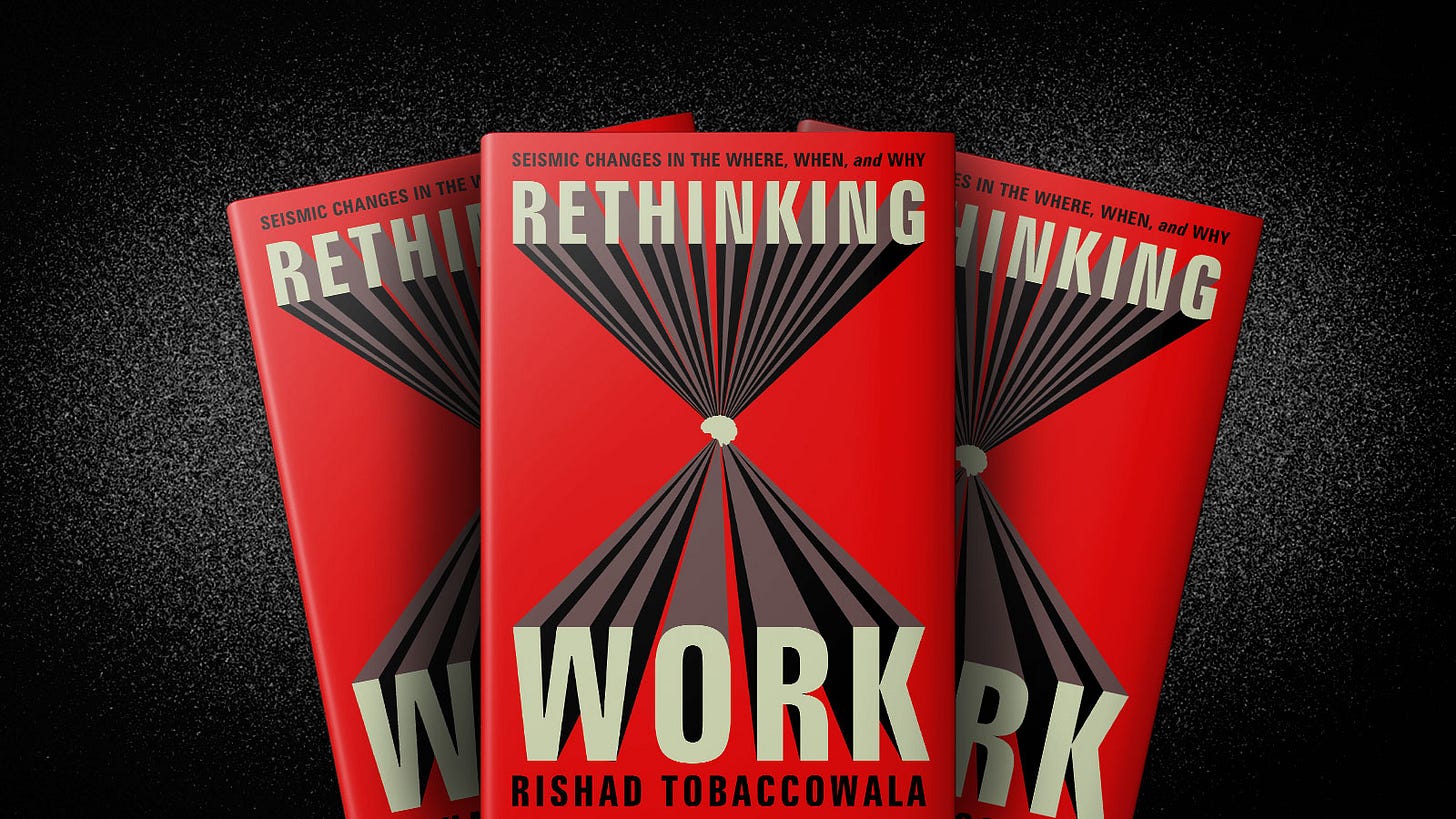Image by Isabelle Watkins using Mid Journey
1. Align with emerging trends.
To succeed you have to ensure that the force is with you.
And to do so you must align with the force.
Often this force appears as a stream and not a gushing river. A weak signal versus an overwhelming pull of gravity.
It may like the Chicago River in that it may be going in the opposite direction of how it should flow in that it does make you question what you believe or what your company or your CEO believes.
In the case of aligning with the trend, try to find a force that will grow over the next 10-15 years.
My career was built on aligning with digital in 1996, the rise of media as the driving force of agencies in 2000, the importance of data driven algorithmic story telling in 2010, and now the rise of the Company of One powered with the rise of new scale of talent, ideas and marketplaces and the decreasing importance of the scale of resources, distribution and spending.
2. Who you work for is as if not more important than where you work.
Working for a successful company with momentum, name recognition and track record of success helps a career through a halo effect and also signaling that one is good enough to get in and to work at these well regarded and hot firms.
But, ask anybody who you believe has succeeded and most of them will signal the importance of the people they worked for.
The terms you will not hear are boss, manager, supervisor but rather leader, guide, mentor.
For mentorship and leadership the key is to find people who combine three elements:
a) Do they have a great reputation for excellence. Excellent work. Excellent Financial Results. Excellent People working for them. It is easier succeed when one is aligned with excellence and growth.
b) Do they have integrity. Do people use the words trust, candid, authentic, straight-shooter, transparent or similar words when describing them.
c) Do they have a coaching tree. Matt Gibbs who used to work with me and is now a successful leader after having sold the company he co-founded, recently shared a piece on The Coaching Tree of a Head Coach. This is exactly what it sounds like — a visual illustration of who head coaches have mentored and where those folks are now serving as successful head coaches. Those head coaches then have their own branches. And so on.
In the world of athletics, the coaches with a superlative Coaching Tree are considered the best of the best. Not only can they succeed with their own teams, but they can transfer their knowledge and skills to others. 20 of the 32 Coaches in the NFL today are related in some way to Bill Walsh of of the San Francisco 49ers.
Image by Diana Kozlova using Mid Journey.
3)Maximize luck by seizing opportunities and thinking positively.
If aligning with a trend and finding a great person to work for are the first two keys, the third is about something that matters a lot in a career and that is somewhat uncontrollable which is luck.
While luck is not under our control we can maximize the opportunities for luck to tap us on our shoulder by saying yes to as many assignments and opportunities as possible even if some seem really questionable.
In 1992, I was offered a role in the Direct Marketing Department of Leo Burnett vs a role in Client Service as the only way to get promoted to an Account Director since there were few openings on the big accounts with too many talented people vying for them.
Direct at that time was not understood by the mainline agency. It was filled with outsiders who spoke of A/B testing, mailing lists and direct to consumer communication. In fact it was so looked down upon that people believed I had doomed my future or was being punished when they found I was on the 34th floor. I therefore answered my calls (lots of calls vs emails those days) with the greeting this is Rishad from the Leper Colony.
Once they finished laughing I also told everybody the future of the marketing and the advertising industry was on 34 ( we were on the 34th floor of the Leo Burnett Building).
Well because of learning about the benefits and challenges of direct, I got the idea of launching the Leo Burnett Interactive Marketing Group with the support of Tom Collinger who ran the Direct area . Then convinced the Leo Burnett Board to “take the name of the door” by closing the Leo Burnett Interactive Marketing Group and launching Giant Step with Adam and Eric Heneghan so we could compete with a digital firms like Modem, Agency.Com, Organic, Digitas and Razorfish vs Leo Burnett’s traditional competitors. A few years later luck came calling via a call from Jack Klues then the head of the lowly back caboose of the agency train (media), asking that I join him and others in the unbundling of Leo Burnett Media to Starcom and launch Starcom IP.
Few hang out in the strange and supposedly less important parts of an organization but it is often there that the future is being forged.
The future comes from the slime, from outsiders, and from the quixotic.
Take a gamble and try your luck on something new and different and it will make all the difference.
4) Never stop learning and never stop growing.
The day you stop being a student is the beginning of the end of your career.
Especially today when knowledge is heading towards being free and the half like of expertise is growing shorter and shorter.
The picture above is the gravestone of Arthur C Clarke who is the author of 2001: A Space Odyssey. I uploaded the picture with a question mark to ChatGPT and here is what I got:
This is the gravestone of Sir Arthur Charles Clarke (1917–2008), the renowned British science fiction author most famous for works like 2001: A Space Odyssey. The inscription—“He never grew up, but he never stopped growing”—plays on Clarke’s lifelong sense of curiosity and imagination. Despite aging in years, he retained a “childlike” wonder about science, technology, and the mysteries of the universe. The phrase suggests that he kept learning, exploring, and inventing new ideas throughout his life—never losing his inquisitive spirit.
It doesn’t matter how senior or how powerful we are. The world is changing so much that even at this stage I spend an hour-and-a-half a day learning. Invest in continuous learning and education, because otherwise we will find ourselves growing increasingly irrelevant.
I remind senior executives who say they have no time to learn not to worry. Since they are not learning in a time of transformational change soon they will lose their jobs and they will have plenty of time to learn.
This shakes everyone out of their stupor and inertia.
5) Success is driven by the people around us much more than us.
As and when you become truly successful, you will realize that your success has been built on a very benign form of a Ponzi scheme.
You will be successful because the people around you are successful. And you will basically be given some sort of credit for the people around you.
Therefore, make sure that you really, really invest in the people around you because that is investing in yourself in everything, from training to relationships to looking after them and helping them along with their careers.
You can’t succeed, especially as you get more responsibility, unless you do that.
Image by Feliperafaelgilson using Mid Journey.
6) Never take yourself too seriously.
Take your work seriously.
Your Clients, Customers and Commitments seriously.
But never take yourself too seriously.
Be humble.
Be approachable.
Laugh at yourself and when people say you’re full of shit, you probably are.
Let them point out the turd on the table of your thinking ( its not a Brownie sir this idea of yours but rather it is excrement!)
Humor is a key.
Another key maybe my new book which will prepare you and your firm for what is coming next! Lots of CEO’s, CTO’s and many more have said so.
Coming Feb 4, 2025 and available for pre-order is my new book. Take a look inside and more here: https://rishadtobaccowala.com/rethinking-work










Thank you so much, sir, for this insightful and valuable article.
I have been inspired by the following phrase from your post.
"This is the gravestone of Sir Arthur Charles Clarke (1917–2008), the renowned British science fiction author most famous for works like 2001: A Space Odyssey. The inscription—“He never grew up, but he never stopped growing”
The phrase captures the beautiful paradox of a life lived with both innocence and wisdom. To say "he never grew up" is to celebrate the boundless curiosity, wonder, and playfulness that remained untouched by the weight of adulthood. Yet, "he never stopped growing" speaks to a relentless journey of self-discovery, emotional depth, and intellectual expansion. It paints a portrait of someone who, like a child, sees the world with fresh eyes but, like a sage, embraces its lessons with grace—forever youthful in spirit yet endlessly evolving in mind and soul.
Thank you for generously sharing your valuable insights & experiences. Courage, ambition, curiosity, open-mindedness, empathy and staying close to caring, smart people with integrity in principle-based organizations can bring happiness, success and growth. Happy Holidays!